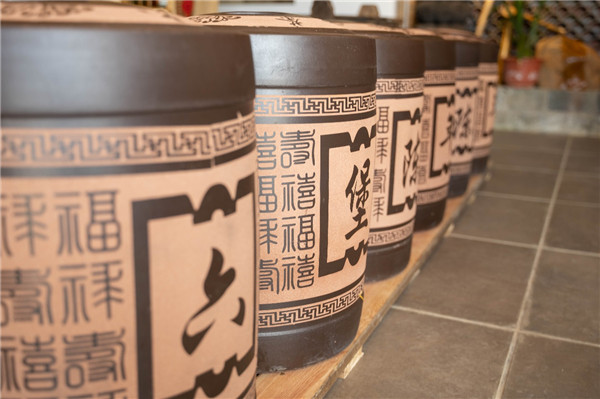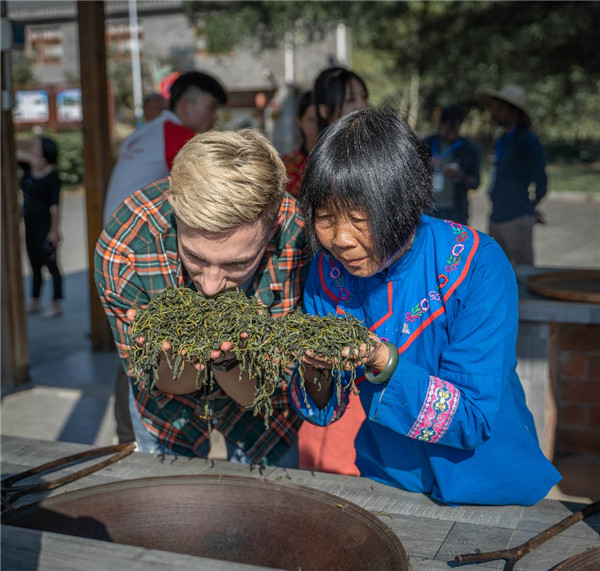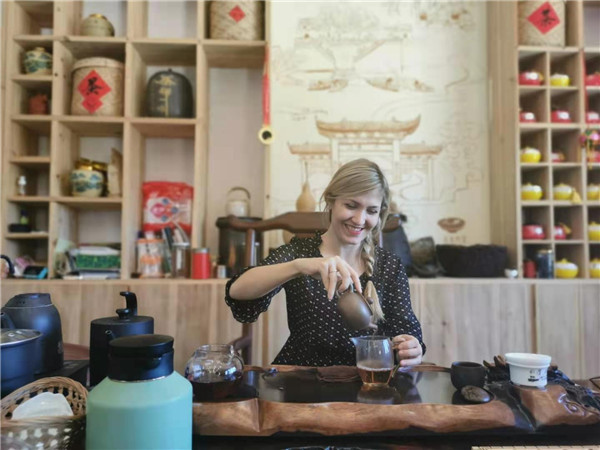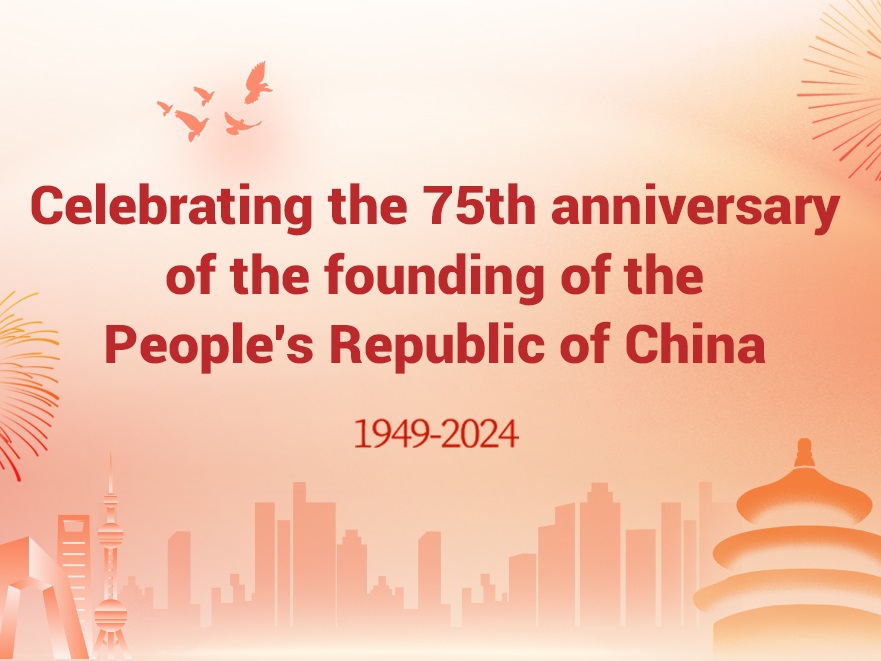Aroma of small tea leaves spreads to bigger world
Updated: 2021-10-27
For Shi Rufei from Liubao town in Guangxi Zhuang autonomous region's Wuzhou city, memories of childhood are filled with the aroma of tea.
Born and raised in a town of dark tea, she saw local people drying, baking and fermenting the leaves when she was a kid, and has long been used to starting a new day with a cup of Liubao tea.

Liubao town is famous for its dark tea. [Photo provided to chinadaily.com.cn]
Liubao tea enjoys a time-honored history. Its written records can be dated back to 1,500 years ago. Due to its unique flavor, Liubao tea gradually gained popularity, with its reputation peaking during the late Qing Dynasty (1644-1911).
Shi's family have been engaged in tea processing for generations. In 2007, after graduation from senior high, she participated in the tea factory run by her parents.
As mechanized tea products developed rapidly, the traditional making techniques of Liubao tea began to lose their advantages in the market. However, Shi adhered to full hand-made procedures and kept improving her tea processing skills to ensure high-quality production.
Through natural fermentation, hand-made Liubao tea is better in shape, color and flavor, and can be stored for longer.

Traditional hand-made Liubao tea draws the attention of a foreign guest in Guangxi. [Photo provided to chinadaily.com.cn]

Alexandra Alexandrou, a scholar from Greece experiences tea-making in Liubao town. [Photo provided to chinadaily.com.cn]
To preserve and pass down the traditional tea-processing techniques, Shi, together with her mother, also began training local tea cultivators.
"I feel it a responsibility for me to protect the techniques of the elder generations and introduce them to more people," she said.
In 2014, Shi was honored as a provincial-level inheritor of intangible cultural heritage.
And her efforts in brand promotion also paid off. The tea business has grown into a pillar industry and realized bigger and bigger potentials. In 2019, the export volume of Liubao tea totaled 181. 6 tons, with a gross value of 2.55 million dollars. The tea is not only welcomed in tea-drinking regions such as Guangxi and Guangdong provinces, but also reaches markets in Southeast Asian countries.
The aroma of Liubao tea is spreading to the outside world. Behind that is Liubao town's dedication to cultural inheritance and the pursuit of prosperity.



